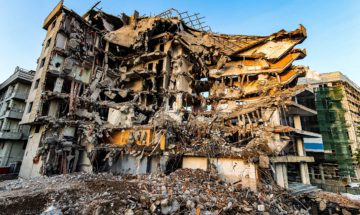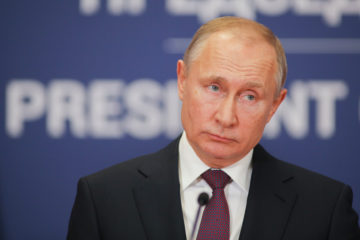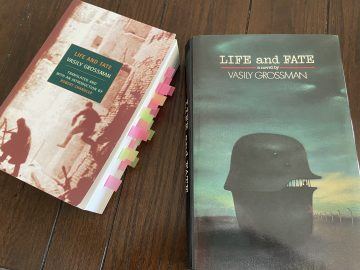by Barbara Fischkin

At dawn on February 24, 2022, Russian President Vladimir Putin announced a “special military operation,” in Ukraine—a euphemism for war, if ever there was one. Since that morning, the fortitude of the Ukrainian people has resounded, even as the Middle East vies for our attention. For me, evidence of this grit—as fertile as Ukraine’s soil—arrives weekly, if not daily, in messages from a young woman in a western city. She writes from Ternopil, a relatively safe place. But from her I have heard that no place in Ukraine is truly safe.
I have also heard that its people are determined to stay, survive and rebuild.
My contact is not a war correspondent. She is an English language instructor, a teacher, a college administrator and the mother of two small children. In other words: A regular citizen. Her name is Oksana Fuk and we have been corresponding since hours after that terrifying dawn, almost two years ago, when Russia invaded her country.
We may have met in person years ago, when she was an internationally-recruited counselor at a camp for developmentally disabled children and adults in the upstate New York Catskill Mountains. What we are sure about is that she knows our elder son, Daniel Mulvaney, who has non-speaking autism and attended this camp for many summers.
On February 24, 2022, as I was searching for more news about the invasion—my mother was born in Ukraine—Oksana’s name popped up on my Facebook feed. I saw that she had worked at Dan’s camp.
When we first connected it was 4 p.m. on Long Island where I live. By then the invasion that morning had been front page news worldwide. It was 11 p.m. in Ternopil. Read more »



 On June 22, 1941, Nazi Germany attacked the Soviet Union in a typhoon of steel and firepower without precedent in history. In spite of telltale signs and repeated warnings, Joseph Stalin who had indulged in wishful thinking was caught completely off guard. He was so stunned that he became almost catatonic, shutting himself in his dacha, not even coming out to make a formal announcement. It was days later that he regained his composure and spoke to the nation from the heart, awakening a decrepit albeit enormous war machine that would change the fate of tens of millions forever. By this time, the German juggernaut had advanced almost to the doors of Moscow, and the Soviet Union threw everything that it had to stop Hitler from breaking down the door and bringing the whole rotten structure on the Russian people’s heads, as the Führer had boasted of doing.
On June 22, 1941, Nazi Germany attacked the Soviet Union in a typhoon of steel and firepower without precedent in history. In spite of telltale signs and repeated warnings, Joseph Stalin who had indulged in wishful thinking was caught completely off guard. He was so stunned that he became almost catatonic, shutting himself in his dacha, not even coming out to make a formal announcement. It was days later that he regained his composure and spoke to the nation from the heart, awakening a decrepit albeit enormous war machine that would change the fate of tens of millions forever. By this time, the German juggernaut had advanced almost to the doors of Moscow, and the Soviet Union threw everything that it had to stop Hitler from breaking down the door and bringing the whole rotten structure on the Russian people’s heads, as the Führer had boasted of doing.